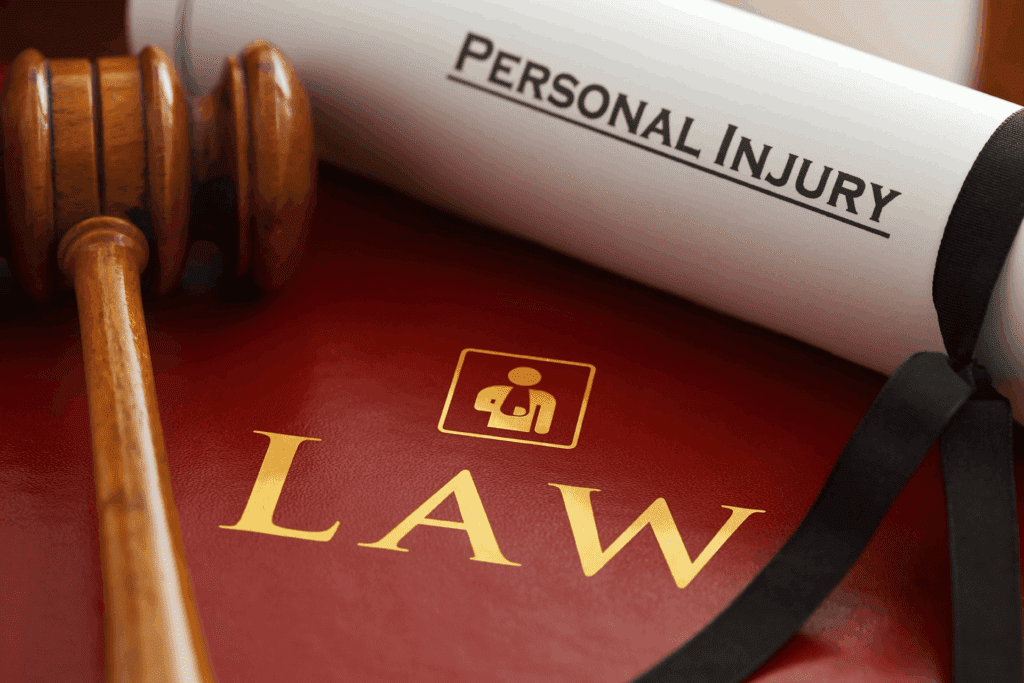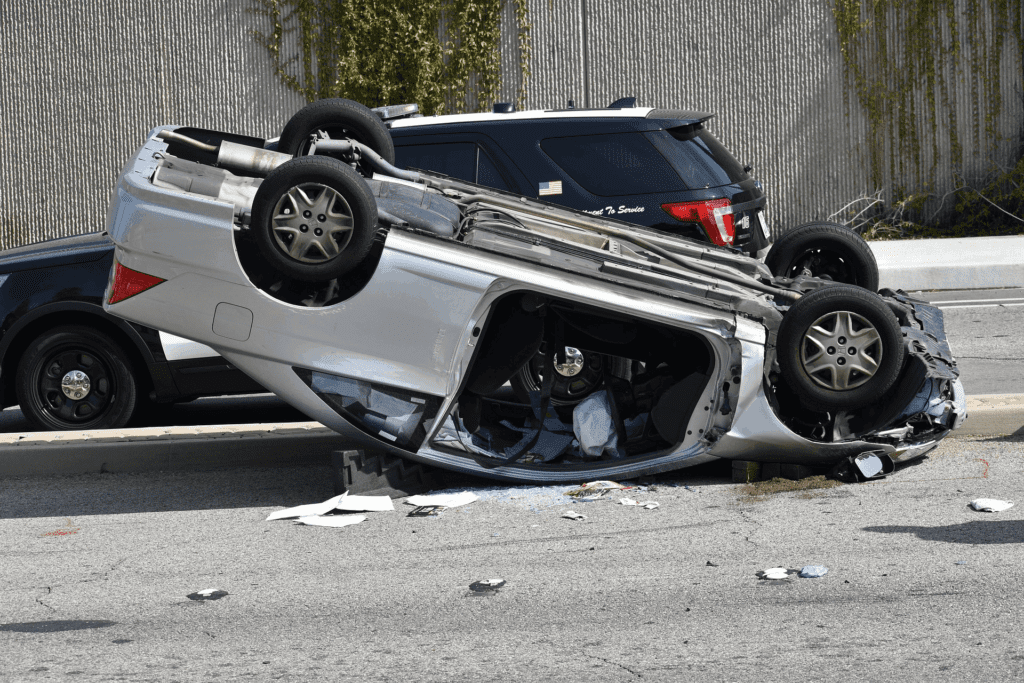In 2021, Texas experienced 15,764 crashes, resulting in serious injuries that affected 19,448 individuals. The state’s death toll also reached 4,489 in the same year as it saw a notable increase in motor vehicle crashes.
Traffic congestion significantly contributes to these motor vehicle accidents as cars, trucks, and buses crowd the Texas roadways. When combined with unsafe driving behaviors, congested roads heighten the risk of getting involved in car crashes and even truck accidents.
Located in Bexar County, San Antonio is among the Texas cities with the worst traffic, along with Houston, Austin, and El Paso. Unsurprisingly, the city of San Antonio recorded a total of 38,461 crashes in 2021. Of these, 626 caused serious injuries, while 182 resulted in fatalities.
Injuries resulting from a car wreck can cause financial difficulties and detrimental changes in one’s life. However, with the help of San Antonio car accident attorneys, injured victims can seek the compensation they need to achieve the best possible recovery after the crash.
Find out more about San Antonio car accidents and the importance of having a specialized legal team.
Key Takeaways
|
Common Causes of Car Accidents in San Antonio, Texas
San Antonio car accidents can happen for various reasons. Although not constantly, motor vehicle crashes often happen because of someone’s negligence.
A negligence case occurs when a driver fails to exercise caution that a reasonable motorist would and should in a similar situation. Disregarding traffic laws is an example of negligent action.
The Texas Transportation Code specifies how drivers must operate their vehicles. Suppose the other driver violates one of these rules, causing the accident and your injuries. You can hold them liable for damages because of their negligence.
The Texas Department of Transportation (TxDOT) enumerates the contributing factors of car accidents on the state’s roads in 2021. Below are some examples of driver negligence commonly contributing to motor vehicle accidents in Texas, including San Antonio.
Speeding
Speeding increases the likelihood of a fatal collision. It causes a loss of control and reduces the time and distance to react to an unexpected road hazard. That’s why Texas strictly enforces its speed limits across the state.
In Texas, the maximum speed limit is 79 mph. However, the Texas Transportation Commission may set it higher, up to 75 mph, 80 mph, or 85 mph, depending on whether the highway design supports such speeds.
Individuals not driving within a reasonable and safe speed are breaching their duty of care. If you get injured by a speeding driver, you can hold them accountable for the harm they caused. Additionally, any citation issued to the speeding driver can be evidence to prove their negligence and fault.
Drunk driving
According to TxDOT, an individual dies every nine hours and six minutes in DWI/DUI-alcohol-related traffic collisions in Texas.
Even a small quantity of alcohol consumption can affect a driver’s ability to operate a motor vehicle. This finding may explain why most wrong-way driving crashes involve intoxicated drivers.
Under Section 49.01 of the Texas Penal Code, drivers are legally intoxicated if their blood alcohol reaches 0.08 percent. Thus, they can be charged with driving while intoxicated (DWI).
Meanwhile, any detectable amount of alcohol in drunk drivers under 21 indicates legal intoxication. They can face driving under the influence (DUI) charges under Section. 106.041 of the Texas Alcoholic Beverage Code.
Besides facing different penalties for a DWI/DUI offense, a drunk driver may also be responsible for compensating the injured victims. However, like other negligence cases, you’ll have to prove that the other driver was liable for the crash.
Failure to yield
Failure to yield crashes occur when a driver doesn’t stop for another motorist or pedestrian with the right of way. The Texas Transportation Code establishes the right-of-way laws for almost every traffic situation.
Different traffic violations fall under the category of failure to yield. However, the most common citation is under Section 545.151 of the Code, which pertains to vehicles entering intersections.
Generally, Texas drivers must yield to any vehicle in an intersection or one approaching it closely enough to pose a risk when crossing. The exception is when it’s not instructed by a police officer or traffic control device.
Suppose you get hurt in a car accident because someone didn’t yield the right of way. You can hold them accountable for the injuries and losses you sustained in the crash.
Following too closely
Also known as tailgating, following too closely behind another vehicle increases the risks of rear-end collisions and other types of car accidents. Tailgating reduces stopping distance, leaving little room and time for emergency braking when a driver suddenly stops.
Under Section 545.062 of the Transportation Code, Texas drivers must maintain a safe following distance between their vehicles. It’s usually up to the driver to determine what driving distance would be considered safe, given the current driving conditions.
Moreover, the Texas Department of Insurance (TDI) suggests a three-second following distance, especially when driving in the rain. You can count three seconds or more to assess the distance between you and the car in front safely.
Tailgating is one of the most challenging violations to assess in Texas. The reason is that determining whether a vehicle is following too closely depends on the judgment of law enforcement.
Distracted driving
Accidents can happen when a driver doesn’t give their full attention to the road. Distracted driving is responsible for approximately one in five crashes on Texas roads, resulting in 431 fatalities and 2,934 serious injuries.
Distractions while driving can be cognitive, visual, and manual. A cognitive distraction refers to any activity that diverts your attention from driving. It may include daydreaming, talking to other passengers, and using hands-free calling devices.
In contrast, anything that takes your eyes off the direction you’re driving falls under visual distractions. Examples may include street signs, billboards, pedestrians, or GPS. Manual distractions cause drivers to take one or both hands off the wheel, including eating or checking their phones.
Section 545.4251 of the Transportation Code prohibits using wireless devices for electronic messaging. Drivers texting while operating a vehicle have breached their legal duty of care. Thus, they could be liable for the injuries and losses suffered from the crash they caused.
Other contributing factors
Besides driver negligence, other factors contribute to motor vehicle accidents, such as improperly designed or maintained roadways, mechanical failures, and weather hazards.
Adverse weather conditions like rain, fog, snow, and ice can reduce visibility. As a result, it will be harder to see the road and any potential hazards.
Suppose the other driver was speeding or failed to use headlights in these poor visibility conditions, which caused the accident. You can hold them liable for the harm.
What are the potential impacts of San Antonio car accidents?


The consequences of car accidents can be life-altering, depending on the collision’s severity. Generally, they can range from physical injuries and property damage to medical expenses, loss of wages, and emotional distress.
Understanding how the crash affects you and your family members is crucial when determining the value of a car accident claim. An experienced personal injury lawyer will certainly know how to properly assess a car wreck’s ongoing and long-term effects.
Nevertheless, it wouldn’t hurt to learn how car crashes can potentially impact accident victims and the possible legal remedies or compensation available to them.
Physical injuries
A car crash can subject your body to some of the most intense and unnatural forces and movements. Depending on the speed and direction of the impact, injured victims could sustain various physical injuries after the crash. Even a low-speed collision can cause you and your body significant harm.
A car wreck’s physical effects, such as bruises, scars, and broken bones, can immediately manifest. However, others may not be visible immediately after the accident. Regardless of your feelings after the crash, you must seek medical help to protect your health and your right to compensation.
Discovery and assessment of car accident injuries don’t only lower the risk of long-term complications. They will also help you understand and establish the physical effects of the car crash.
The record of prompt medical attention will demonstrate the connection of your injuries to the accident and the extent of the treatment you need. You may recoup the costs of your medical expenses by filing a personal injury claim against the at-fault party’s
Permanent disabilities
Some injuries may cause permanent disabilities. Common injuries that often affect the injured victims permanently include brain injuries, neck and back injuries, and spinal cord injuries.
The damages will be more significant when a car wreck results in a permanent disability since it’s not something that you can recover from in a short period. The physical and financial challenges are ongoing and will indefinitely impact the accident victim’s life.
Car crash victims who sustained permanent disability will likely need costly and continuous medical care for the rest of their lives. Some may be unable to live independently or without 24-hours assistance.
Inability to work
Depending on the accident’s severity, your injuries can prevent you from working for an extended time, resulting in lost wages.
Typically, lost wages include your salary, tips, vacation pay, and other benefits. Securing damages for loss of wages help you make up for the income you lost while in the hospital getting treatment.
Meanwhile, some injuries can lead to permanent and life-altering disabilities. These injuries will impair or diminish your ability to return to work, perform the job you used to, or earn money in the future. In this case, you can pursue compensation for loss of earning capacity.
Emotional trauma
Getting injured in a motor vehicle accident is a distressing experience. Unsurprisingly, many accident victims experienced emotional trauma after the crash.
Unlike physical injuries, the emotional aftermath of a car crash isn’t visible. However, they can significantly impact one’s ability to move on after the incident. Its common symptoms may include fear, anxiety, panic attacks, sadness or hopelessness, and withdrawal from others.
Section 41.001 of the Texas Civil Practice and Remedies Code allows accident victims to recover non-economic damages, compensating them for their emotional trauma. Other types of non-economic losses include:
- Physical pain and suffering
- Disfigurement
- Loss of consortium
- Loss of enjoyment of life
- Loss of companionship
- Injury to reputation
Property damage
Besides physical and emotional injuries, auto accidents can also cause damage to one’s vehicle. Typically, the at-fault driver and their
You can include several types of property damage in a car accident claim. Vehicle damage is the primary property damage usually sustained in a car crash. You may also recover compensation for any personal belongings damaged during the collision, such as your phone or laptop.
How can a San Antonio car accident lawyer help you?


Car accident victims can handle their personal injury claims without a lawyer. However, navigating the legal aspects of car accident cases can be complex without proper knowledge.
If you’re unfamiliar with the law, you may not get the compensation you deserve. A personal injury lawyer can walk you through your legal rights and options, ensuring you’re protected from the onset.
Additionally, different laws may impact your car accident claim. For instance, Texas is an at-fault state, meaning the at-fault driver must compensate the injured party for their car accident injuries and losses.
Moreover, determining fault in auto accident cases can be complicated. Liability could be attributed to more than one motorist to some extent, limiting the amount you can recover. This is one reason to work with personal injury attorneys.
Texas is one of the states that uses the modified comparative negligence rule. Section 33.001 of the Civil Practice and Remedies Code refers to it as proportionate responsibility. It means that if your percentage of fault in the accident exceeds 50 percent, you may not recover damages.
An experienced San Antonio car accident attorney knows how to deal with proportionate responsibility defenses. They can adequately investigate and provide sufficient evidence to prove that the other driver was more at fault for the car wreck.
Suppose the
However, not all personal injury attorneys are trial lawyers. Thus, when seeking legal representation, consider the attorney’s trial experience and track record in cases they have represented.
Many injured victims hesitate to hire an attorney because of their costs. If that’s a concern for you, finding a competent lawyer that works on a contingency fee basis would be helpful. Instead of paying out of pocket, lawyers only get paid when or if they win your case.
Did you know?
The total economic and societal damage caused by motor vehicle accidents amounts to $871 billion a year. For taxpayers, this means an additional tax burden of $230 for every household.
Get Fair Compensation for a San Antonio Car Accident
The aftermath of a motor vehicle accident can be overwhelming. Besides the medical bills, lost wages, and other expenses, injured victims also have to deal with pain and suffering. In fatal car wreck cases, family members have to face the loss of a loved one.
Suppose you get involved in an auto accident that wasn’t your fault, which resulted in injury, property damage, or even wrongful death. You may be qualified to pursue financial compensation for such losses.
Unfortunately, with the insurers not having your best interests at heart, obtaining fair compensation is often tricky. That’s why pursuing a personal injury claim by yourself isn’t advisable. You’re more likely to get the best possible outcome with the help of a San Antonio car accident lawyer.
Begin your search at The Personal Injury Center. We can connect you with the most reputable law firms with experienced personal injury attorneys specializing in car accident cases. Schedule a free consultation today to further discuss your needs.
Understand your legal rights and options after a San Antonio car accident. Find the best legal assistance through The Personal Injury Center.
FAQs on Understanding the Impact of a San Antonio Car Accident
What should you do after getting in a San Antonio car accident?
Under Section 550.026 of the Texas Transportation Code, you must report accidents that result in injury, fatality, or damage to a vehicle that makes it unsafe to operate.
Call or ask someone else to dial 911 for medical help and assistance from law enforcement. Stay on the scene while waiting for help to arrive.
Your safety and the passengers must be your priority. But if you're capable, collect information and evidence at the crash scene.
The responding officer will write a report of the incident. This report can be valuable evidence in your personal injury claim. You can obtain police reports through the San Antonio police department.
When should you report a hit-and-run accident in San Antonio, Texas?
Texas has a two-year statute limitation to report a hit-and-run accident. But you may lose your chance to file an insurance claim if you fail to report the incident within 24 hours. It can also result in losing valuable evidence and witnesses, making it more difficult to determine the at-fault driver.
Can you recover compensation after getting hurt in a hit-and-run crash in San Antonio, Texas?
In Texas, the at-fault party must provide financial compensation for any injuries and losses resulting from the accident, including hit-and-run accidents.
You can still seek compensation if you're a victim of a hit-and-run. If you can identify the hit-and-run driver, you can claim a personal injury against their liability coverage. However, you may have to file a claim with your insurance company if you cannot locate them.
Remember that you cannot use your liability coverage to recoup the losses you suffered after the crash. It's only possible through uninsured motorist coverage, collision coverage, and personal injury protection coverage.
But such coverages are not mandatory by law. They will only apply to your situation if you include them in your insurance policy.



